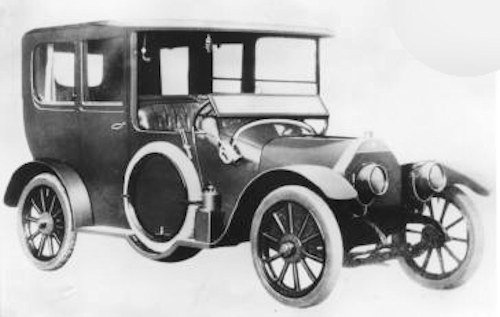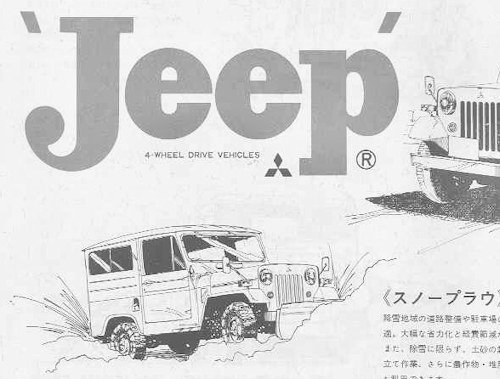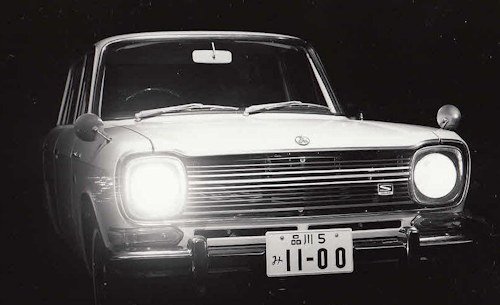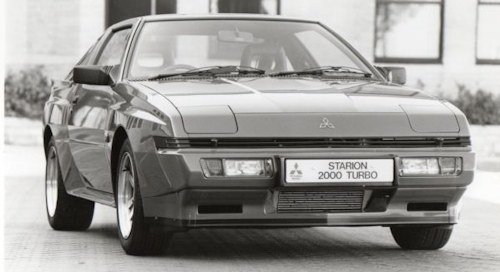Mitsubishi Motors History
Minato, Tokyo, Japan

The Mitsubishi Motors Corporation is a Japanese car and Commercial vehicle manufacturer, based in Tokyo Japan from 1917 on.
History
The Mitsubishi Motors Corporation belongs to Mitsubishi Keiretsu, which was founded in the early 1870s by the samurai Iwasaki Yatarō as a shipping company. In 1875, the name Mitsubishi was first used for the Mitsubishi Mail Steamship Company. Mitsubishi built the first automobiles as early as 1917 with the Model A the first serial automobile of Japan on the market. This was based on the Fiat Tipo 3 and was completely handmade. Due to the much cheaper competition from America and Europe, the production was discontinued in 1921 after only 22 built copies.
In 1934, Mitsubishi Shipyard merged with Mitsubishi Aircraft Co. to form Mitsubishi Heavy Industries (MHI), becoming one of the largest private companies in Japan. After Mitsubishi had presented the first diesel engine with direct injection in 1931, four prototypes of a four -wheel drive passenger car were manufactured and tested in 1934 with the PX33, a variant with diesel engine was also under development. However, the entire project was discontinued in 1937 as not important to the war effort.

Immediately after the end of the war, Mitsubishi revived automobile production, rebuilt the Fuso buses and began developing and manufacturing scooters and tricycles. From 1951 came with the CKD assembly of Kaiser Motors Henry J and Willys Jeep the licensed production of the first car added. In 1960, the small but family-friendly Mitsubishi 500, the forerunner of the first Colt series, appeared. From 1961 and 1962, the Kei-Cars rounded Mitsubishi 360 and Minicathe program down, from 1964, the luxury sedan Debonair was sold mainly to the Japanese market.

In 1950 Mitsubishi automotive activities were driven largely independently of each other with three companies to the beginning of the 1960s Japanese mass motorization, production jumped from 5023 passenger cars to a total of 75,000 cars in 1967. 1964, the three sub-companies were again Mitsubishi Heavy Industries (MHI) merged on April 22, 1970, the vehicle divisions of the three former sub-companies spun off MHI and converted into the newly established company Mitsubishi Motors Corporation (MMC) as an independent company, previously it was a division of Mitsubishi Heavy Industries.
In 1971, Chrysler acquired a 15% stake in MMC and began selling the Mitsubishi models Galant and Lancer under its own brands. MMC set up its own network of dealers and garages in Europe, placing it in direct competition with Chrysler's Europe subsidiary Simca, which in turn led to tensions between the two partners went public on 5 December 1988 and Chrysler increased its stake in MMC to over 20%. In 1989, MMC sold 1.5 million vehicles worldwide, the 1982 newly introduced Pajero was contrary to all expectations to a great success, z. B. also in Japan. In order to exploit this success extensively, the program of the Pajero was extensively expanded in the beginning / middle of the 1990s. Therefore, MMC was largely spared from the Japanese crisis, which began at the beginning of the 1990s. The other Japanese manufacturers, on the other hand, experienced violent crises, including Honda. In 1992/93 there were rumours of a hostile takeover of Honda by MMC.

The Almost collapse of Mitsubishi
After renewed problems Chrysler had in 1991 to sell its share of the joint plant in the United States (later renamed Mitsubishi Motors Manufacturing of America Inc), until 1993 all shares in MMC were also completely sold again and Chrysler completed its cooperation with MMC in November 1997, a three-year restructuring program was launched with the aim of reducing personnel and costs and becoming profitable again in 1998. In April 2004, DaimlerChrysler announced that it would not provide Mitsubishi any further financial aid and was now selling all of its shares. As a result, the brand was about to go bankrupt. In addition, the models were outdated and were difficult to sell. Only in Europe was it from the introduction of the new Colt in the summer of 2004 uphill again. With the sales launch of the second Outlander in the spring of 2006, the sales figures in Japan also rose again.
In 2003, the commercial vehicle division of Mitsubishi Motors was spun off and since then forms the independent company Mitsubishi Fuso Truck and Bus Corporation. At the beginning of 2005, a cooperation agreement was signed between Mitsubishi Motors and the French PSA group. The signed memorandum provided for an annual production from 2007 of 30,000 SUV vehicles for Peugeot and Citroën in Japan. The vehicles are based on a platform currently being developed by the Mitsubishi Outlander and will be given a standalone look for each brand. The cooperation improves production utilization at Mitsubishi.
In April 2016, Mitsubishi announced manipulation of the fuel consumption of its models. 625,000 cars, including 468,000 copies of two models for Nissan, are affected. After Mitsubishi's share price collapsed, Nissan announced on May 12, 2016, that it would buy 34% of Mitsubishi's shares for 237 billion yen.
Manuals
-
Mitsubishi Previous 29 / 55 Next
